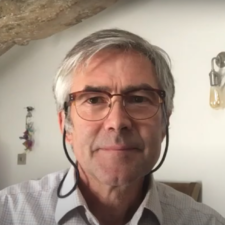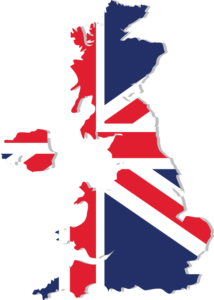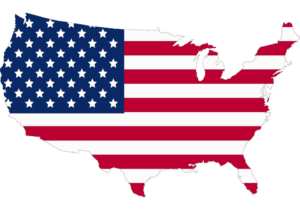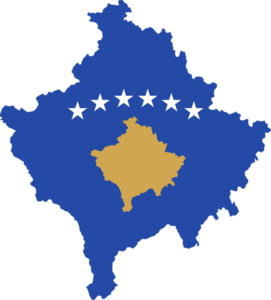Rupert Douglas-Bate: CEO and Founder

-
2003-Present UK: CEO & Founder, Global MapAid
Following a Thomson Reuters Foundation fellowship at Stanford University in 2002/3, Rupert founded Global MapAid (MapAid) in the UK and USA, dedicating approximately 50% of his time as an unpaid volunteer. MapAid focuses on challenges in disaster prevention or development through needs-based mapping, which improves cost savings and collaboration among decision-makers. Recognising the critical need for sustainable water solutions, particularly for small farmers, MapAid initiated the development of WellMapr™, an AI system for groundwater detection and mapping designed to improve the accuracy of shallow well drilling and digging. While the system has global applications to support the world’s 2.5 billion small farmers, much of the development and initial testing is happening in Ethiopia to support the 47 million small farmers living under the World Bank poverty line. To support this initiative, Rupert secured funding and Gift-in-Kind (GIK) support from Arba Minch University (Southern Ethiopia) in 2016, George Mason University (Washington DC) in 2019, and the Czech Geological Survey in 2023. Since November 2019, this team of pioneer partners has invested over USD $1 million in WellMapr’s development, with Rupert currently leading and coaching the MapAid AI development team.


-
1999-2002 UK, Kosovo: Country Manager, MapAction
Rupert founded MapAction as a result of a mapping project in the Kosovo in Dec ‘99. As Country Manager, on iron rations, he set up a local team, and made maps of small business re-start activities, to help post-conflict reconstruction. These served as demonstration maps at the charity launch in April 20021. Rupert also developed his concept and rationale of gap-analysis for sustainable job creation.


-
2001-Present UK: Owner, Rupert Douglas Fine Foods
Rupert has set up and project managed this small marketing business, distributing great quality organic and gourmet food, to over 1,000 customers. This business situation has given him valuable insights into how to run a small business, which informed his book about sustainable job creation “The Competition for Hope”.

-
2012 UK, Ethiopia: Consultant, European Commission
The role consisted of carefully consulting to create terms of reference. Then working with investors and potential investors and EU personnel on the investment concepts and questions they considered important. It was necessary to then prioritise those questions and concepts, diagnosing answers and then feeding back solutions and knowledge into the investor guidelines, which were delivered within agreed deadlines. Rupert used email, phone, online and face to face enquiries.


-
2012 Ethiopia & Djibouti: Country Manager, Stratex East Africa Ltd
Rupert advised and ran a support and administration team for 10 geologists and back-up crews, local and international, searching for gold, totalling about 40 people. He supported and administered logistical support to remote teams in the Danakil Desert, and completed a successful hand-over to a longer-term team. Stratex pursues the very highest of ethical values, in terms of both health & safety and environmental standards. At the outset, he built a teamwork strategy that significantly improved the work rate and contentment of the office support team.


-
2011-12 Ethiopia: Country Manager, Meridian Drilling Ltd
Rupert provided full time support, consultancy and operational leadership. His project management covered general management and services for geological exploration in one of the harshest environments on the planet. He ran a support and administration team in two offices for 30 personnel working on 2 drilling rigs in the Danakil Desert, drilling for potash samples. He set up and delivered a comprehensive financial audit and covered the gamut of human resource operations.

-
2008 UAE: Marketing & Fundraiser Consultant, The Mowgli Foundation
Mowgli is a not-for-profit social enterprise, working in the MENA region, to catalyze the support and development of successful and sustainable entrepreneurship through mentoring. The strategic goal of Rupert’s mission was to help Mowgli create a fundraiser dinner launch event and win the support of VIP and HNW individuals who were invited.

-
2005 USA, New Orleans: Emergency Team Leader Post Hurricane & Flooding
One notable mission from September 2005 to October 2005 was a MapAid team that went into the aftermath of Hurricane Katrina. Over the course of eight weeks, the team produced 50,000 maps to assist returnees, guiding them to critical aid agencies for food, shelter, and water. This effort earned recognition and gratitude from the U.S. military and local county authorities. While MapAid’s core focus is typically disaster prevention, the exceptional circumstances in the USA compelled us to act.

-
2002-03 USA: Reuters Digital Vision Fellowship Programme, Stanford University
He won a scholarship to become a fellow at Stanford to research and develop a humanitarian mapping technology, using space applications. The fellowship enabled him to build a team of 23 academics and students who built a satellite and GPS technology that won a top prize at the Stanford Business Association of Stanford Engineering Students, in 2003. The technology consisted, in essence, of a system to map emergency data at ground level, then send if via an Iridium satellite link to a web server, where it was plotted on a map. Out of this project came Global MapAid.

-
2001 UK: Consultant Manager, Trans Global Management Services
Working in a small team marketing and developing leadership and teamwork packages for government departments and commerce, Rupert helped devise brochures, arrange meetings and promote and attend courses.

-
1999 Kosovo, Montenegro: Shelter Coordinator, World Vision & Chair of UNHCR Shelter Committee
The mission became two jobs in one, working as both the UNHCR Representative and the World Vision Representative, in Mitrovice, Kosovo. It was an intense post-conflict leadership role, in charge of international teams looking after rather traumatised populations. He led teams setting up refugee housing schemes and established emergency refugees forwarding centres in Mitrovice, Prishtina and Ulsinje. Together with his team of 14 men and women, he also surveyed 5,000 houses in 8 weeks working 16 to 20 hour days.
As UNHCR Representative, he also collated information from 15 agencies and provided information on the type and quantity of repair materials needed for housing that was repairable, significantly alleviating severe pressure on an overwintering population of approximately 500,000 people in Mitrovice. In addition, he was responsible for logistics for World Vision Mitrovice, organising delivery of over-winter shelter materials, and emergency food handouts.


-
1998-99 UK: Map Maker, World Disaster Report, International Federation of the Red Cross
Rupert jointly researched and part-time mapped the world’s worst year for natural disasters (to date) making maps.

-
1997-98 Bosnia: Registration Supervisor and Polling Supervisor, OSCE
He served the Organisation for Security and Cooperation in Europe on three separate occasions in Bosnia, monitoring elections. The work involved a great deal of organisational effort and leadership, which included negotiating with people who were very distressed. On one mission, in Sept 1998, he exercised individual crowd control, where several hundred eager voters were under the impression they were being denied their rights resulting in a security challenge by angry voters making death threats. He also dealt with the physical collapse of a polling station during voting, when it was full of people.

-
1998 UK: Manager, Jonathan Woolfrey Landscapes
He worked in a small business in a close-knit team, as a team leader and assistant leader managing landscaping contracts for Tesco and other supermarket companies.

-
1997-98 Eastern Congo: Project Finance Assessment Officer, Christian Aid, ECHO, DfID
Rupert was sent to the Congo, to oversee a complete financial audit at the Bukavu regional office. He was responsible for ensuring fulfilment of ECHO, DfID and Christian Aid reporting procedures, for a large agriculture and food security programme in rural Bukavu, which was a post-conflict zone. The budget was c.£1,500,000. Conducting most of the work in French, he also set up a monitoring & evaluation of programme to help ensure the operation remained on track.

-
1997 Jordan: Leadership Student, UN University International Leadership Academy & Global Leadership Forum
The UNU-ILA was founded to bring youthful leaders together, to promote peace. Rupert was able to learn much by meeting and listening to their Royal Highnesses, Queen Noor of Jordan and her late husband King Hussein of Jordan who were founder Patrons. He attended lectures by Shimon Perez, Yasser Arafat, David Steel and Harriet Fulbright, amongst others. He also received 360-degree feedback and training from the Centre for Creative Leadership (CCL), in the context of multicultural leadership. Later he attended the Global Leadership Forum which came out of the UNU-ILA at the University of Bahçeşehir Istanbul, in 2001 and 2006, where he discussed a variety of global leadership issues. He remains friends with Dr Adel Safty who was instrumental in supporting these organisations.

-
1997 Bosnia: Agricultural Specialist Team Member, Brown & Root, European Union
Rupert contributed to the research and development of a European Union proposal, providing detailed agricultural assessment in Bosnia, to define job possibilities and thus facilitate rehabilitation of 40,000 refugees in Banja Luka.

-
1996-97 UK: Sales Analyst, Newmark Technology Ltd
Detailed financial analysis of security projects as an intensive management accounting exercise, which demonstrated that 80% of sales were derived from 20% of customers. These results could thus enable Newmark to focus on a revised business strategy where it could focus on the most profitable customers while outsourcing less profitable customers to dealers.

-
1994-95 Armenia, Georgia, Abkhazia: Water & Sanitation Engineer, International Committee of the Red Cross
This role consisted of emergency relief organisation in ex-Soviet Union, post-conflict zones. Rupert set up water & sanitation renewal programmes for clinics and hospitals. He also created fabric and roofing renewal projects and led distributed teams of 30 workers, in a team. He was responsible for budgets of 100 million roubles. 14 projects of varying sizes were completed during his mission, working in Nagorno Karabagh within Azerbaijan and also Georgia and Abkhazia, on the Black Sea. This was a challenging mission, given that he had to negotiate with mafia and live in many different places.



-
1994 Bonsia and Herzegovina: Water Engineer Team Leader, Scottish European Aid, Soros, UNHCR
As a water & sanitation engineer, Rupert worked on project programming for sanitation, water supplies, and construction projects. With a budget of U$ 1.4 million, he consecutively project managed 40 small rural and 2 large town projects near or in Tuzla town. He was also responsible for setting up a mobile slip form concrete team for villages. The locals provided the “sweat equity” and did the manual work, while SEA provide skilled inputs and building materials. He spent much time spent surveying, negotiating, and drawing up contracts. He had to survey spring lines, elevations and distances, at villages near front lines and together with locals, managed to conceal several new water tanks underground to help avoid future artillery fire.

-
1993 UK: Substantive Second Lieutenant, Britannia Royal Naval Collage
Rupert entered the elite Navy training establishment of Her Majesty’s Britannic Royal Navy. Here he covered a huge range of tactical leadership skills, and technical skills, in both classroom and outdoor environments. The Navy was not ultimately his vocation, but he has taken the excellent leadership skills and training he was given, and applied them to humanitarian work.

-
1992 Kuwait: United Agricultural Production Company
Rupert worked for the United Agricultural Production Company of Kuwait, as a member of a team reviving irrigation rehabilitation after Gulf War. He surveyed damaged equipment and made lists of replacement parts. It was a frustrating mission, as the finances required to pay and implement the new equipment were simply not forthcoming.

-
1992 Albania: Project Proposal Researcher, World Vision
Proposals were submitted for a medical emergency and developmental farming in Albania, covering Emergency Seed Inputs, Emergency Rehabilitation of Health Care Services, Appropriate Mechanisation of Agriculture, Emergency Hospital Rehabilitation.

-
1991 UK: Dames & Moore, UK Ministry of the Environment
Work involving throughly researching and writing up an environmental risk assessment for disposal of a variety of industrial and agricultural waste in UK, to inform the creation of UK legal code within Containment of Substances Hazardous to Health legislation.

-
1991 Northern Iraq: Engineer and Team Leader, Department for International Development
Working closely with Allied military personnel, teams of British firemen, aid workers and Kurdish refugees, Rupert project managed the effective logistics and establishment of adequate water and sanitation to refugees. This was an emergency assignment to Northern Iraq, in the Kurdish region, after Gulf War 1 ended, and it was arduous, living on the side of mountain.
Under the terms of ‘Operation Haven’ he was deployed as a civilian engineer, on attachment to 42 Royal Marine Commando. He led teams of UK emergency aid workers, including medics, firemen and emergency NGOs, to create emergency water and sanitation facilities for over 100,000 refugees. He also organised emergency health projects.

-
1989-91 Kenya, Uganda, Ethiopia: General Manager, Christian Engineers in Development
Work on projects concerned with water, waste disposal, agriculture. One of these employed local professionals and tribesmen, to refurbish a water supply tank in the Chalbi Desert. He also created and marketed an innovative database of technical consultants for use by NGOs at an affordable cost. In Uganda, he helped make plans for setting up a veterinary clinic to promote tribal reconciliation in the north, between Teso and Karamoja. He visited an Ethiopian orphanage and recommended next steps for refurbishment of their water supply.



-
1988-89 UK: Laboratory Technician, Oil Plus Ltd
This position entailed helping to build complex laboratory experiments to test rock, water and oil samples with additives. The additives were put in water that was later pumped under oil-bearing strata, to loosen oil from the rock.

-
1987-88 UK: Agricultural Assistant, Flower Farms
Rupert worked on a mixed arable beef farm that was slowly becoming an organic farm. This gave him a thorough grounding in the many diverse aspects of organic agriculture.

-
1982-83 India, Pakistan and Bangladesh, Gap Year Volunteer, Interserve
Rupert worked in the school holidays and raised money to go to Asia. He worked in Bangladesh, on NGO administration, and also practical work at an orphanage. Later in India he helped to set up an NGO conference. He ended up in Pakistan working at a student centre and on a building project.























